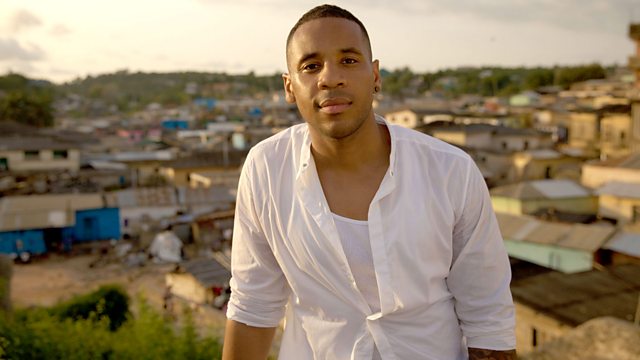Preview: Fanshen Cox DiGiovanni questions race and identity in “One Drop of Love”
ArtsATL: Atlanta’s source for arts news and reviews
2014-09-21
Kelundra Smith

Fanshen Cox DiGiovanni
As an MFA candidate in the Television, Film and Theatre program at California State University, Los Angeles, Fanshen Cox DiGiovanni originally set out to make a documentary about identity and race, using her Jamaican and white ancestry as the core of the story, as her thesis project. But since her concentration was on performance, a professor advised her to do a theater piece to showcase her acting chops. So she took her footage and research and transformed the documentary into a multimedia one-woman show called One Drop of Love. She is performing that show in the Fox Theatre’s Egyptian Ballroom tonight at 7 p.m.
The title derives from the U.S. Census “one drop rule,” which states that a person who has at least one parent of African descent is automatically considered black. The daughter of a Jamaican father (Winston Barrington Cox) and white mother (Trudy Cox), DiGiovanni spent her early years in Washington, D.C., until her parents divorced and she moved to Cambridge with her mom and brother Winston. She spent much of her life questioning and aligning herself with a strong black identity, but falling in love with a European man caused her to ponder that choice more intensely.
The blue-eyed, blonde-haired actor, writer and producer married her husband, Diego, in July 2006, and her father did not attend the wedding. His absence from her nuptials caused them not to speak for seven years. But One Drop of Love needed an ending, just as her relationship with her father needed reconciliation. Here DiGiovanni talks about her ethnic identity, the role race has played in her family and a chance encounter with one of the show’s producers, actor Ben Affleck.
ArtsATL: How do you ethnically identify?
Fanshen Cox DiGiovanni: I am a culturally mixed woman searching for racial answers. That’s the best I can say, and I explore this in the show. I talk about how my ethnic identity has changed over the years, based on geography and relationships with my family. It is constantly changing. However, I got to the point politically where I had to educate myself about the way black people are treated in this country. As someone who may not look black or identify as black, I have a lot of privileges that people who don’t look like me — who aren’t light-skinned or have blue eyes — can’t take advantage of. Sometimes I think that calling myself black and aligning myself with that struggle does a disservice to people who are actively living that struggle, because they don’t have the same privileges…
…ArtsATL: In identifying as black, did that affect your relationship with your white mother?
DiGiovanni: Momma Trudy is a free spirit who loves everybody and cares deeply about justice and equality, and she was all for it. She encouraged my brother and me to attend historically black colleges. She encouraged us to identify as black. She was never hurt by my identity choices. She encouraged us to know her family, but she also shared stories about how her mother disinherited her after she married my father. She did us a great service, because she shared it all with us, including her understanding of justice and equality, especially knowing that my brother was going to move through life as an identifiable black man…
Read the entire interview here.


